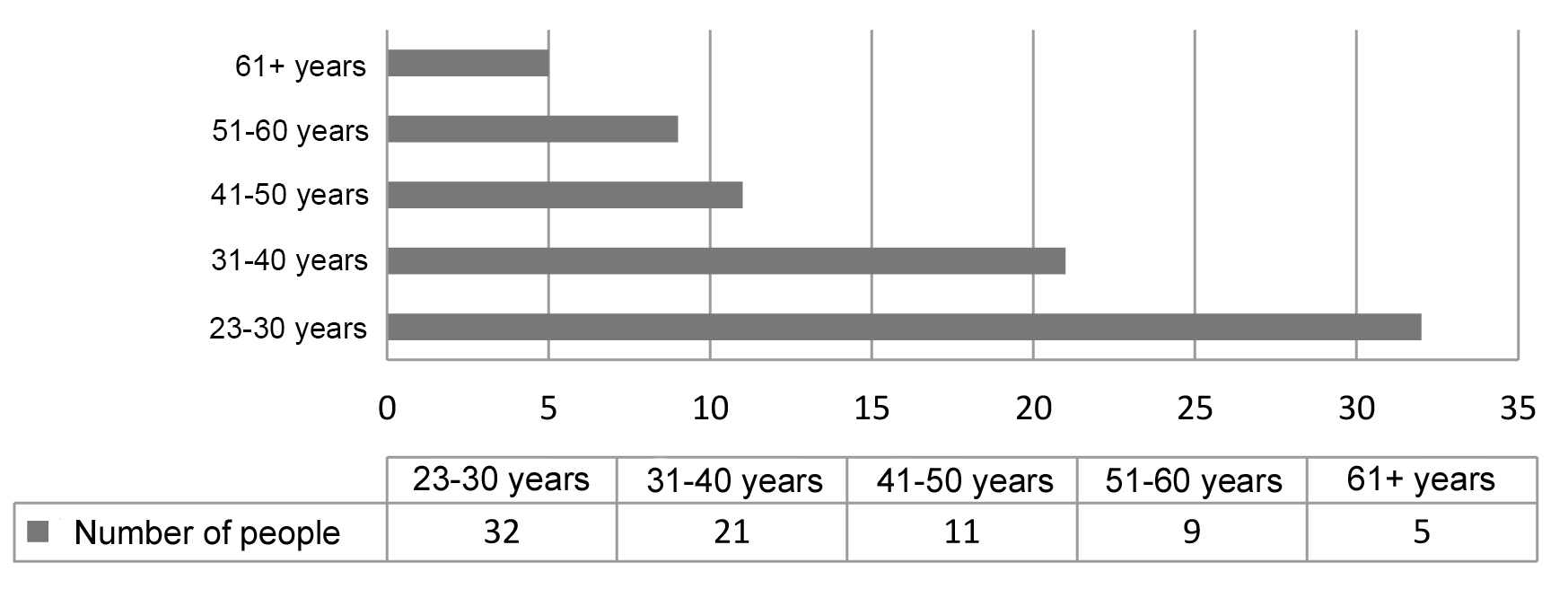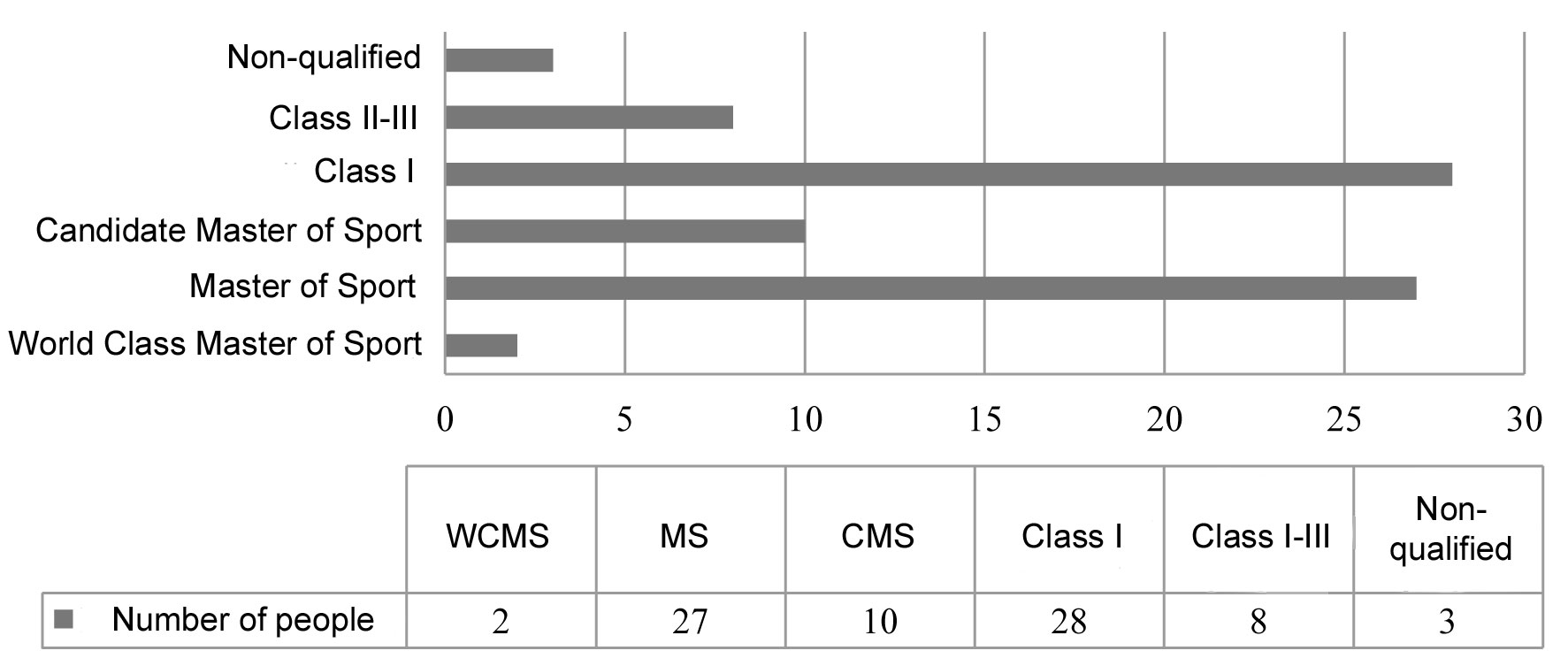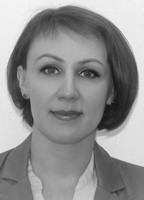Academic physical education and sport specialist professional retraining curriculum and its implementation experience
Фотографии:
ˑ:
PhD, Associate Professor N.S. Panchuk1
Dr.Hab., Professor Sh.Z. Khubbiev1
Dr.Hab., Professor V.E. Smirnov2
E.A. Kunitsynа3
A.D. Malchenko3
St. Petersburg State University, St. Petersburg
Russian State University of Justice, Moscow
Peoples' Friendship University of Russia, Moscow
Keywords: advanced professional education, professional retraining curriculum, physical education and sports.
Background. Challenges of the modern life on the whole and a variety of labour market demands in particular force the national education system give a growing priority to the versatility of human resource, and this is the reason why a special emphasis is made on the advanced education system (AES) development initiatives to meet the growing need of the modern people for professional education. One of the key components of the AES is the professional retraining subsystem that gives a new background education and makes it possible to start up a new professional career. This holds true for the physical education system.
Objective of the study was to analyse implementation progress of the Academic Physical Education and Sport Specialist professional retraining course.
Study results and discussion. SPSU is implementing the Academic Physical Education and Sport Specialist professional retraining (PR) course designed as required by the bachelor training curriculum of the FSHES for 034300 Physical Education discipline; Federal Laws “On Education in the Russian Federation”; “On Physical Culture and Sports in the Russian Federation”; and “On M.V. Lomonosov Moscow State University and Saint Petersburg State University”; Bachelor Education Standard applied at SPSU; and the relevant regulatory documents of the Ministry of Education and Science of the Russian Federation and professional standards [1].
Analysis of the existing PR curricula and practices in the national higher education establishments shows the people’s interests in the physical culture and sports sector being quite versatile. However, titles and content of these curricula cannot be considered new, original and modern enough and this may be the reason for the interest of the students in the curricula being lower than expected. Therefore, variations of the people’s demand for and interests in the advanced education services need to be studied and analysed.
In the period of 2014-2017, the Academic Physical Education and Sport Specialist professional retraining (PR) course has been implemented in SPSU. For this time, 75 people have been trained and certified by the state Professional Retraining Diplomas; and 96% of the graduates are now employed in the national physical education and sports sector and higher education system. Data on the students’ ages and sport qualifications are given hereunder: see Figures 1 and 2.

Figure 1. Age structure of the professional retraining course students in 2014-2017

Figure 2. Sport qualifications of the professional retraining course students in 2014-2017
Prior to the professional retraining course, the students were reported to go in for the following sports: orienteering sport (n=4); mountaineering (n=7); swimming (n=3); dance sports (n=7); volleyball, beach volleyball, basketball (n=10); motor sport (n=1); cycling (n=1); archery (n=4); karate, aikido, kalaripayattu (n=3); football (n=2); billiards (n=14); table tennis (n=1); artistic gymnastics, aerobics (n=3); marine all-round events (n=3); rowing (n=1); boxing, wrestling (n=3); and 9 people reported no prior sport background. Furthermore, the students were very different in their labour records, background educations, age, sport interests and professional qualifications, and every of these factors was duly taken into account in the education process design and management. It should be noted that most of them had to go to the retraining course for the reason that the human resource offices require the formal qualifications certified by diplomas being compliant with the relevant professional standards. Questionnaire survey of the students revealed the following data: see Table 1.
Table 1. The SPSU PR course students questionnaire survey data
|
Question |
Response |
Percent |
|
Have the self-fulfilment and individual progress been among your primary goals when coming to the advanced education course? |
Yes |
100 |
|
Do you consider the professional retraining diploma a key motivator for the course? |
Yes |
70 |
|
Do you give a high priority to the new physical culture and sports related knowledge and skills obtainable at the course? |
Yes |
100 |
|
Why have you chosen SPSU for the professional retraining service? |
Top ranking university High quality education Convenient schedule Acceptable terms of education |
30 20 30 20 |
|
What professional career do you think about upon getting the diploma? |
Coaching work Physical education teacher Uncertain |
60 10 30 |
|
Are you going to fully mobilise your educational resource and prior professional background and experience in the physical culture and sports sector? |
Yes |
70 |
Therefore, most of the students appreciate the role of AES for career in the physical culture and sports sector in the new social and economic conditions; with 70% reported being highly motivated for the quality professional education striving to be competitive enough on the modern labour market and, hence, demonstrating high academic progress in the studies.
The Academic Physical Education and Sport Specialist professional retraining course offered at SPSU is unique since none of the national physical education universities has offered a similar service so far. The course is provided now at the Physical Education and Sports Sub-department rather than the Department of Physical Education Institute.
It should be noted that education process success largely depends on certain conditions and principles. The students’ professional competency upon completion of the Academic Physical Education and Sport Specialist professional retraining course depends on the following conditions: multilateral financing of the education process; adequate assets, equipment and informational support; due incentives for the educators, managers and assistant personnel; due support from the relevant Federal and regional educational authorities and administration of the education establishment; persistent modernisation of conceptual, management, practical and technological resources for the education process; high quality of the curricula and discipline-specific education programs; compliance of the relevant professional standards, education standards, Federal laws on education and physical culture and sports in the Russian Federation; reasonably selected academic disciplines to build up the required professional competences; due consideration for the prior sport qualifications of the students, their practical experience in the national physical culture and sports sector, primary backgrounds, thesaurus [2], interests, needs and motivations; due individualisation of the educational paths and trajectories; progress in legal culture; due updates of the practical course models; modular, interactive, “reverse”, distance and other education models applied; and special facilitating environment for the AES dominated by the technical and informational provisions [3, 4].
Having analysed the available literature on the subject and practical experience of the professional retraining service, we would offer the following basic principles for the AES in the physical education domain: education system flexibility, variability and accessibility; due consideration for the external and internal factors for the education process success; systemic and timely education process audits and academic progress tests followed by the relevant corrective actions; prudent design of the education process; informational transparency and innovative appeal of the education programs; international emphasis in the education process; interdisciplinary approach; optimisation of the education terms and conditions, with an emphasis on the time efficiency of the contacts-establishing and self-reliant activities; application of the modern achievements in the education theory and practice, physical culture and sports; self-education and self-advancement of the education service personnel etc.
Conclusion. Today a growing priority is being given to the key issues of the sport education system since the Labour Code and labour laws of the Russian Federation set forth a new status for Athlete’s profession with new professional standards Athlete and Coach. Duly standardised professional training in the regular national education system and retraining in the advanced education system will facilitate an inflow of highly qualified human resource in the national sports sector on the whole and professional sports system in particular.
References
- Koval’ I.E., Yarchikovskaya L.V., Lukina S.M. Informatsionno-kommunikatsionnye tekhnologii v realizatsii ozdorovitelnykh programm v vuze [Information and communication technologies in university health programs implementation]. Teoriya i Praktika Fizicheskoy Kultury, 2016, no. 7, pp. 9-11.
- Ministerstvo obrazovaniya i nauki Rossiyskoy Federatsii [Ministry of Education and Science of the Russian Federation]. Available at: http://xn--80abucjiibhv9a.xn--p1ai.
- Nevolin I.F., Pozina M.B. Tezaurus kak pokazatel kompetentnosti lichnosti [Thesaurus as indicator of individual's competency]. Vestnik prakticheskoy psikhologii obrazovaniya, 2010, no. 2 (23) April-June, pp. 69-72.
- Semibratov A.M. Personifitsirovannoe povyshenie kvalifikatsii pedagogicheskikh rabotnikov s ispolzovaniem informatsionno-kommunikatsionnykh tekhnologiy; Sintez novykh metodik i vysokikh tekhnologiy [Personalized teacher training using information and communication technologies; Synthesis of new techniques and high technologies]. Available at: http://solutions.panasonic.ru/kompleksnye-resheniya/sintez-novykh-metodi....
Corresponding author: fizkult@teoriya.ru
Abstract
Peoples' Friendship University of Russia in Moscow gives a high priority to the advanced education curricula designed to secure permanent education of a modern specialist. The Ministry of Education and Science of Russia has developed the key regulatory provisions for the academic advanced education process to supplement the main education curricula, and now Russian universities are giving a growing priority to the advanced professional education services.
Saint Petersburg State University has implemented an academic physical education and sport specialist professional retraining curriculum designed on a modular basis to secure the curriculum being flexible, adaptable to the labour market situation in the physical culture and sports sector and customisable to the practical needs, motivations and expectations of the trainees. Every trainee may be offered an individual education path/ trajectory as required by the vocational sport discipline, individual sport qualification, primary background, practical experience in the physical culture and sports sector (if applicable) and career expectations (senior teacher, associate professor, professor, department head, dean, vice-principle etc.). The advanced education course is designed to retrain academic physical education and sport specialists for their promotion to the responsible positions in the education, practical and research fields at physical education departments and institutes.




 Журнал "THEORY AND PRACTICE
Журнал "THEORY AND PRACTICE